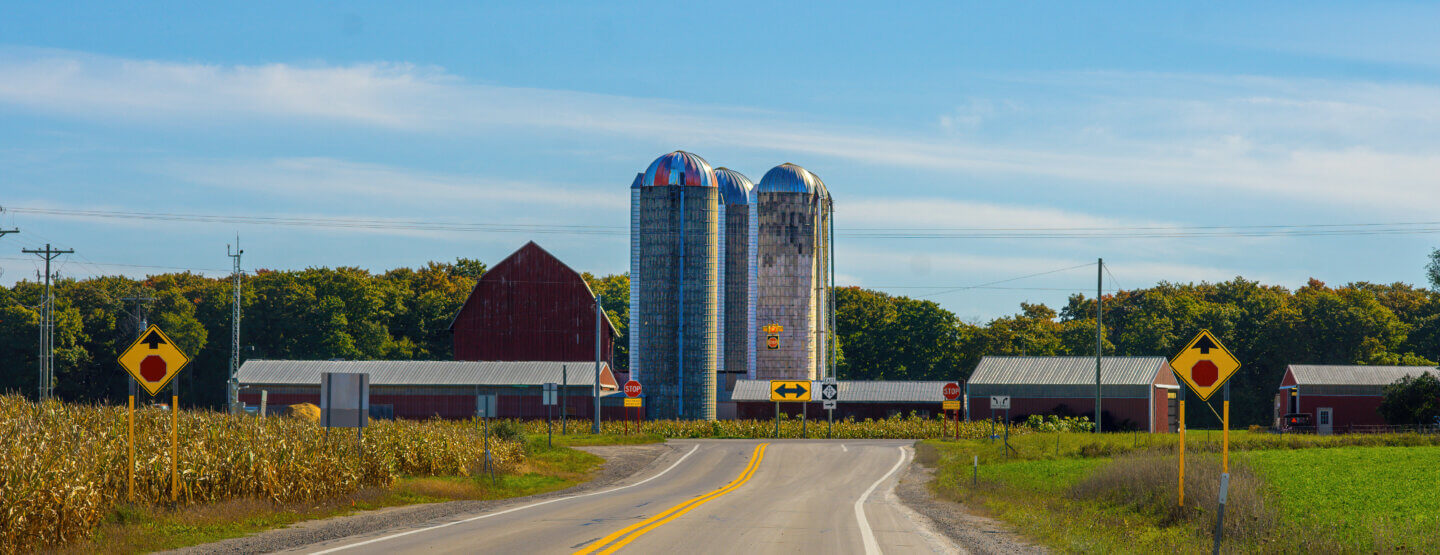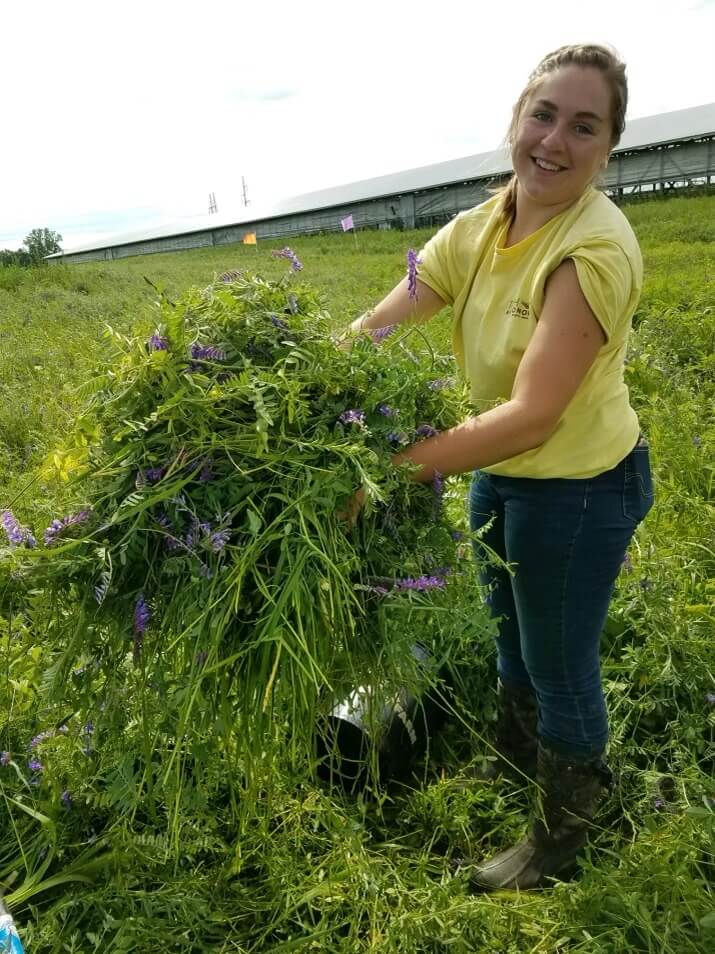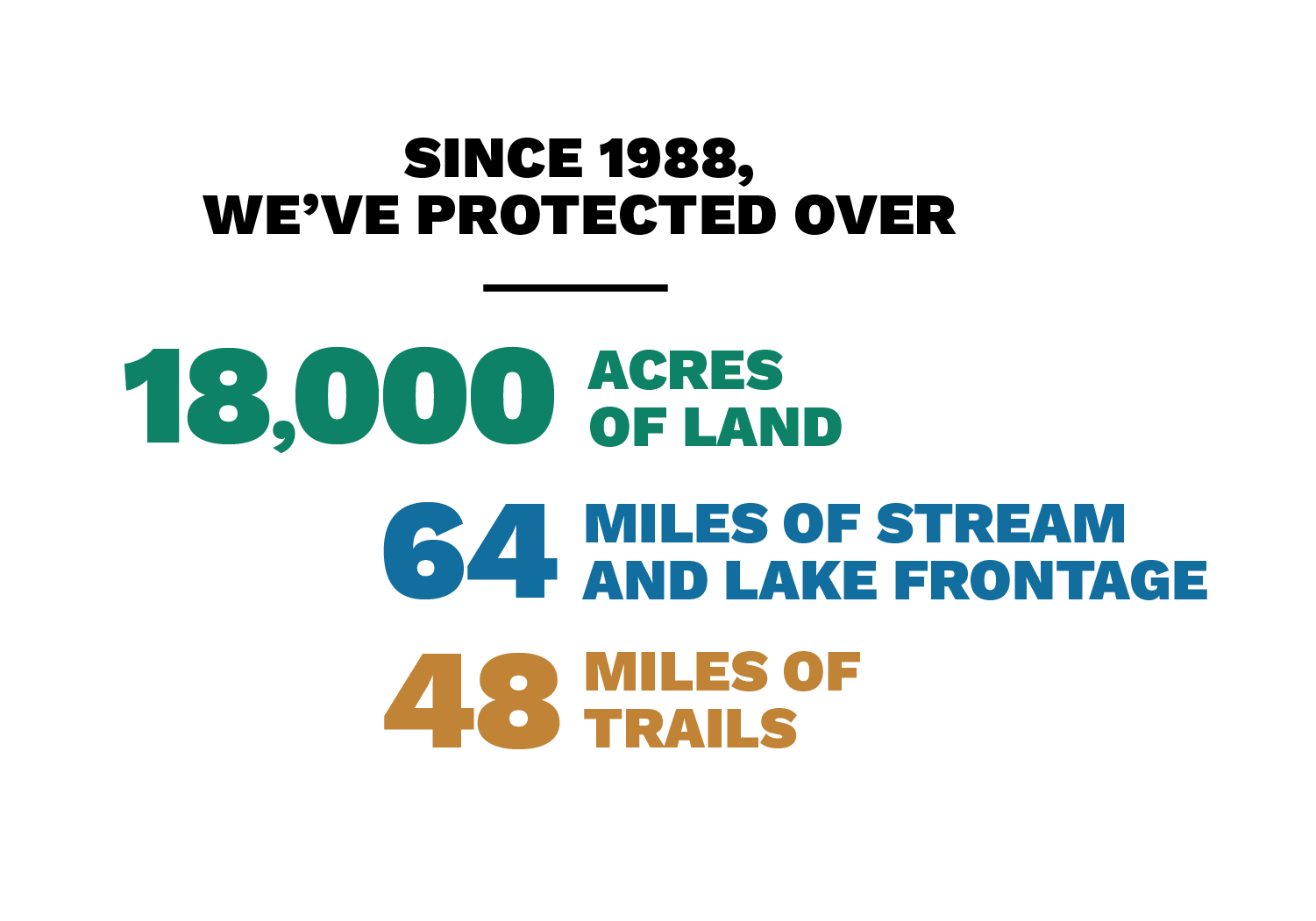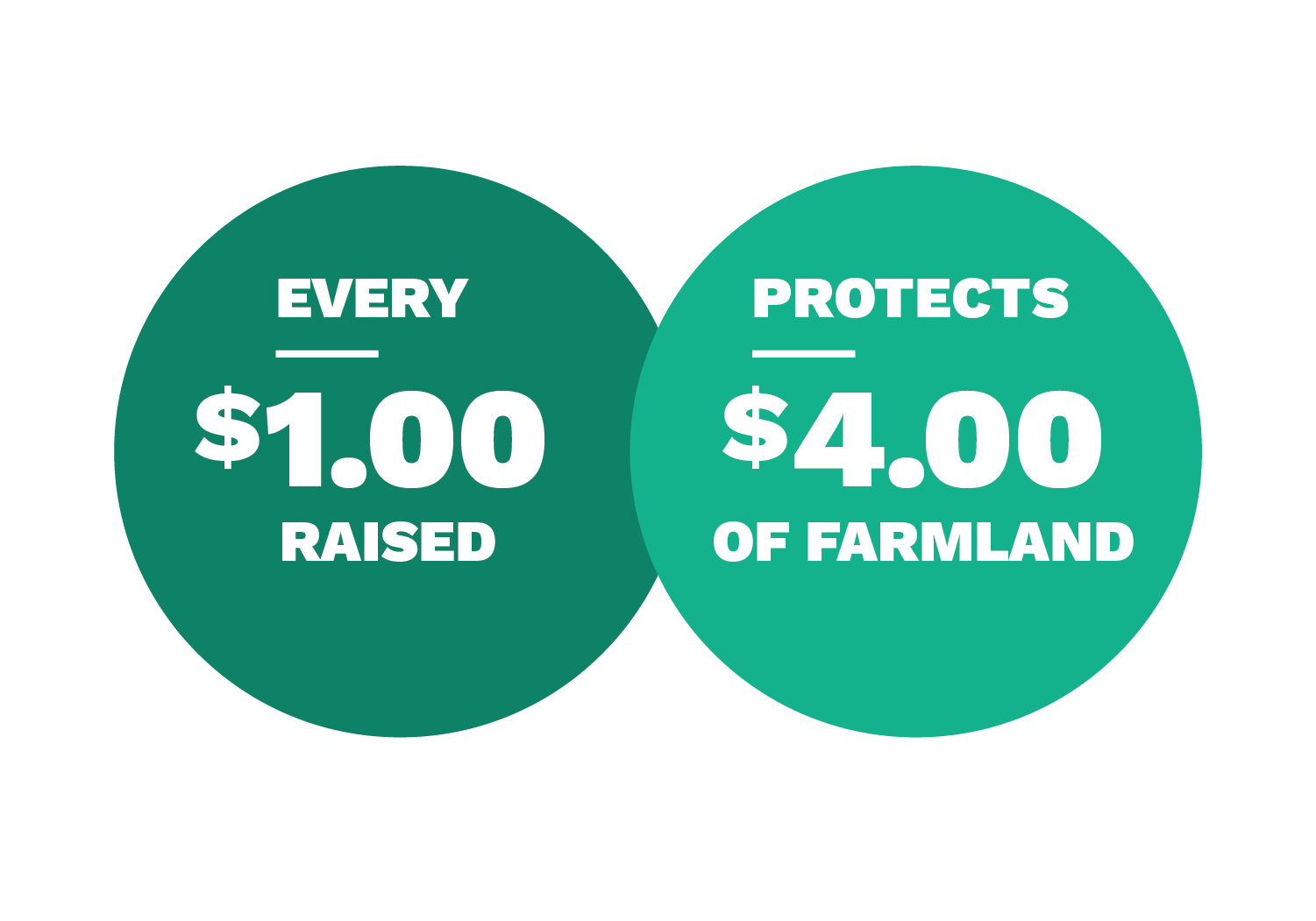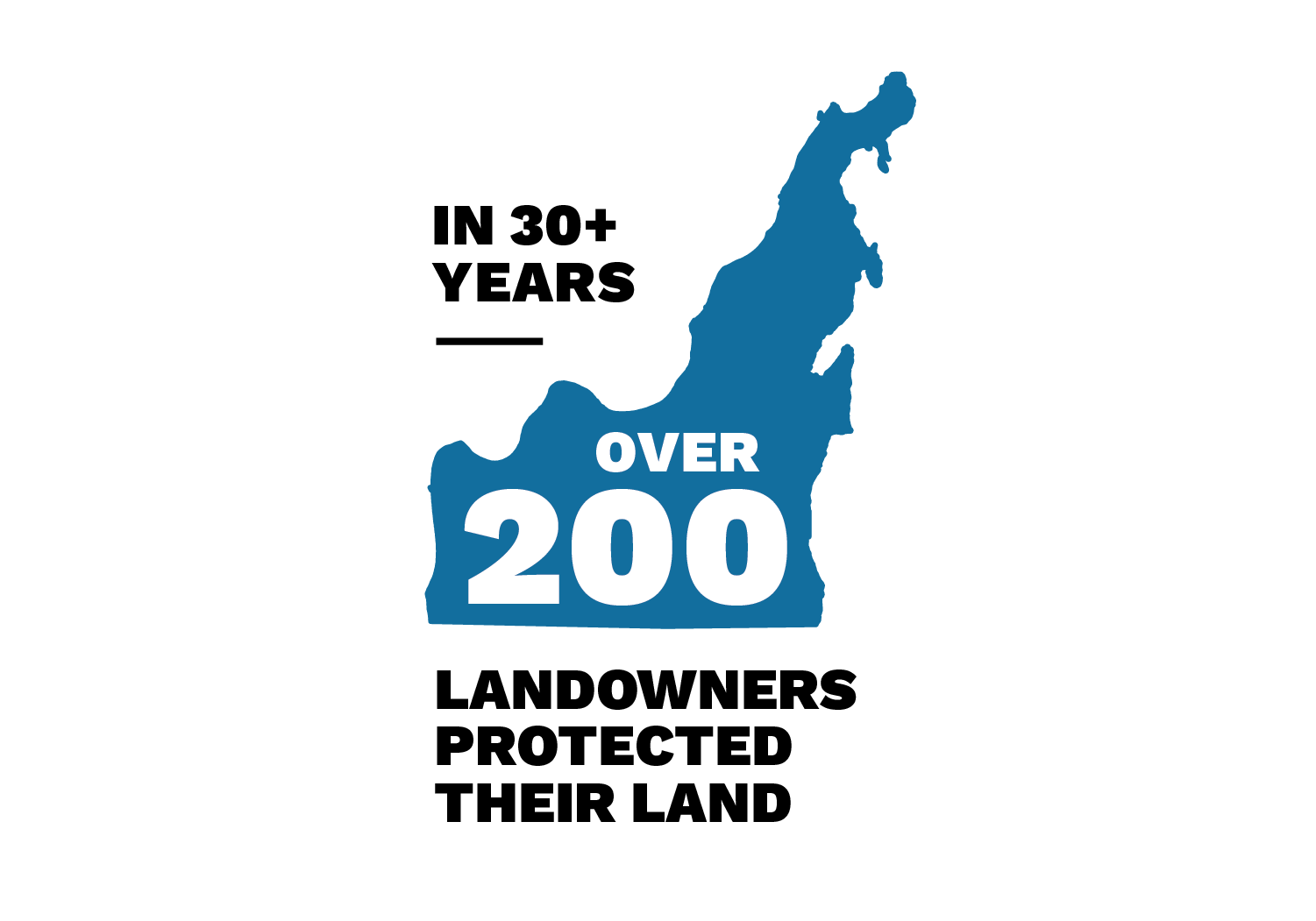If you’ve driven around Leelanau, you’ve likely passed the Shimek farm. A quintessentially Leelanau picture, the farm stand, red barn, and silos at the bend of M-72 have inspired painters and photographers for decades. We’re thrilled to announce that this beloved view will forever be an inspiration and a farm. With support from the Regional Conservation Partnership Program of the Natural Resources Conservation Service and thanks to donors like you, we’ve successfully protected 232 acres of the Shimek family farm with a conservation easement.
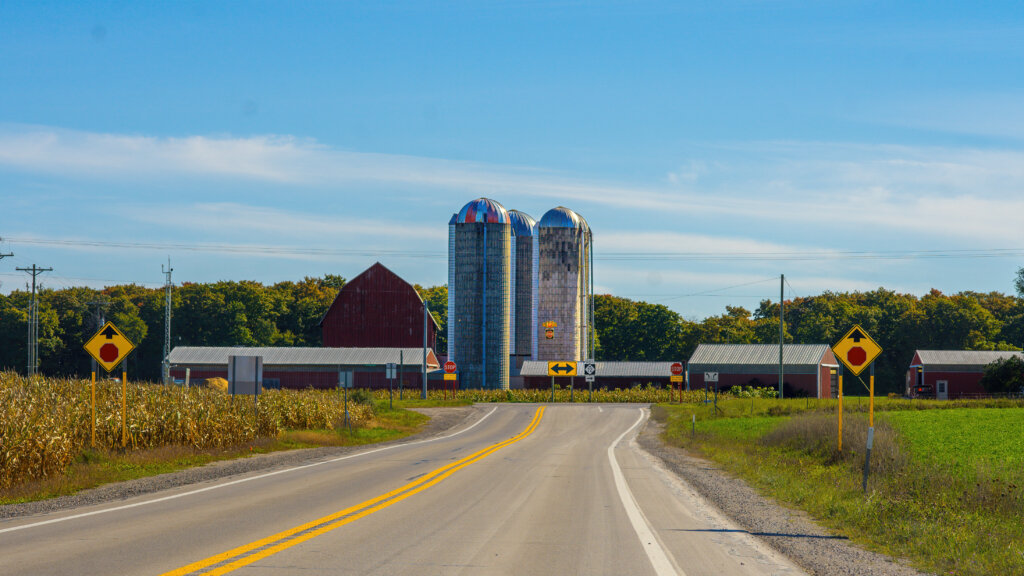
Tom and Linda Shimek are the second generation to farm this property. Tom’s parents, Charles and Antoinette Shimek, bought the property in the ‘40s and farmed potatoes and dairy. Their roadside farmstand used to be a farmhouse and Tom’s first home. “That house had been built in the 1860s,” Tom explained. “So, there was no insulation, no plumbing, only a hand pump in the kitchen to get water. We had a Michigan basement where we stored the potatoes.” In 1957 the family moved next door into a modest ranch home built for their family of six and an uncle that lived with them until his passing in 1957. It’s the same home Tom and Linda live in today and where they raised their children.
As farm kids, Tom, his brother Chuck, and sisters Jane and Grace learned how to milk a cow, bale hay, and do other farm chores. Growing up, however, Tom aspired to attend college and become a state policeman. Tom played football while attending Glen Lake High School. His high school football coach helped him secure a scholarship to Ferris State and instructed him to train hard so he would be ready for the university’s football season.
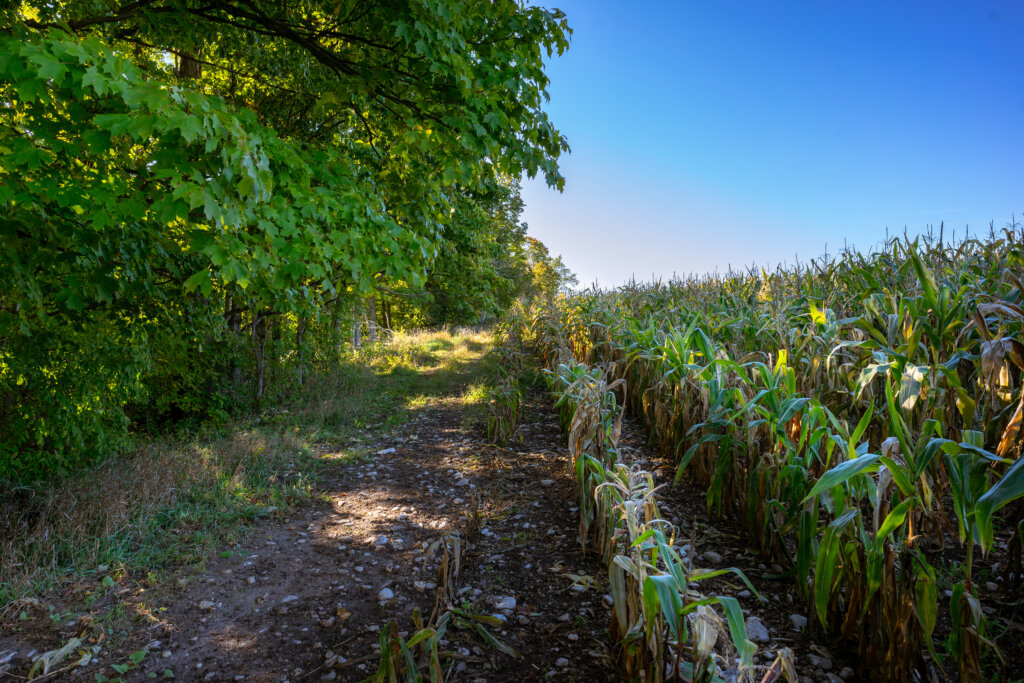
Another future was about to unfold for Tom. Adjacent to the farm fields is dense woodland. While training, he would run through the forested, hilly terrain. “Back then, the cows roamed all over, and they’d go into the woods. They wore a path down smooth, so I’d run it, and it was like running on concrete.” A month before leaving for Ferris, Tom’s father suffered a heart attack. Watching his weak and worried father in the hospital made Tom make a life-changing decision. “I said, ‘Dad, don’t worry about anything. I’ll stay home.’”
Though he was a new dairy farmer, Tom was no stranger to the ropes. He knew how to operate farm equipment and what daily tasks needed to be done—but taking over as the principal farmer made him seek out how to be better and learn more. “There was a magazine called Hoard’s Dairyman, and I would read that every month. I learned a lot in those articles,” he said. “I also had an easy way with mechanics, so when equipment broke down, I could fix it.” In between becoming an excellent dairy farmer, Tom attended social events in the county. One evening, a familiar face caught his eye at a friend’s wedding. “We both graduated from Glen Lake,” Linda said. “He was a few years older, but I was a cheerleader and would see him at events, church, and dances. My mom and dad also met at a dance,” she smiled. The two danced at their friends’ wedding and went on to get married in 1973.
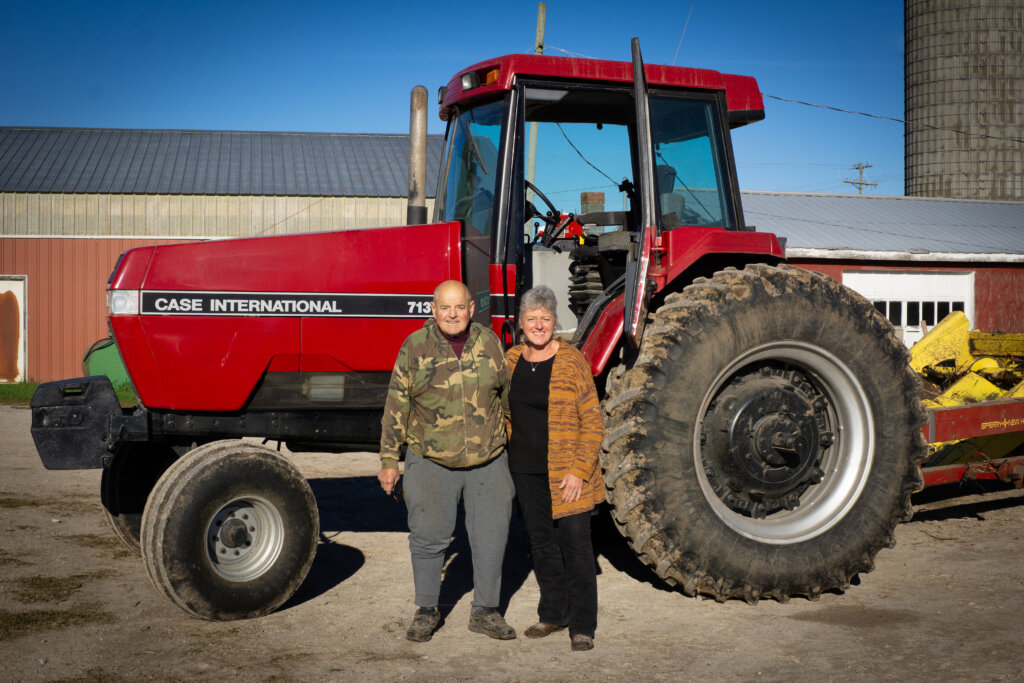
Though most of her work life has been spent working alongside Tom on the farm, Linda worked for the Department of Social Services until their firstborn daughter Amie was born. She and Tom have three children: Amie, TJ (Thomas James), and Liz (Elizabeth). Over time the Shimeks streamlined their dairy farming with equipment that made milking more efficient. They also started expanding sweet corn acreage. “When Amie was little, she used to sell sweet corn in a bushel basket,” Tom smiled at the memory. “I think it was a buck and a quarter for a dozen.”
Life on the farm was idyllic and quiet for a time. Known for being gravel rich, a ‘gravel district’ was created for Kasson Township in the ‘80s. This district includes the Shimek farm. Two nearby gravel and sand companies keep a steady flow of large, rock-hauling trucks passing by the farm. And while Tom and Linda acknowledge gravel’s necessity, they feared for the future of their farm. “It’s nice that there’s a financial benefit to protecting the farm, but that wasn’t our motivation. We wanted to be sure this would always be a farm. The gravel industry didn’t use to be as prevalent as it is now. Because we’re on so much gravel here, it could be sold and mined. That was the last thing I wanted to happen,” Linda said. “The farm, the woods, it could all be gone.”
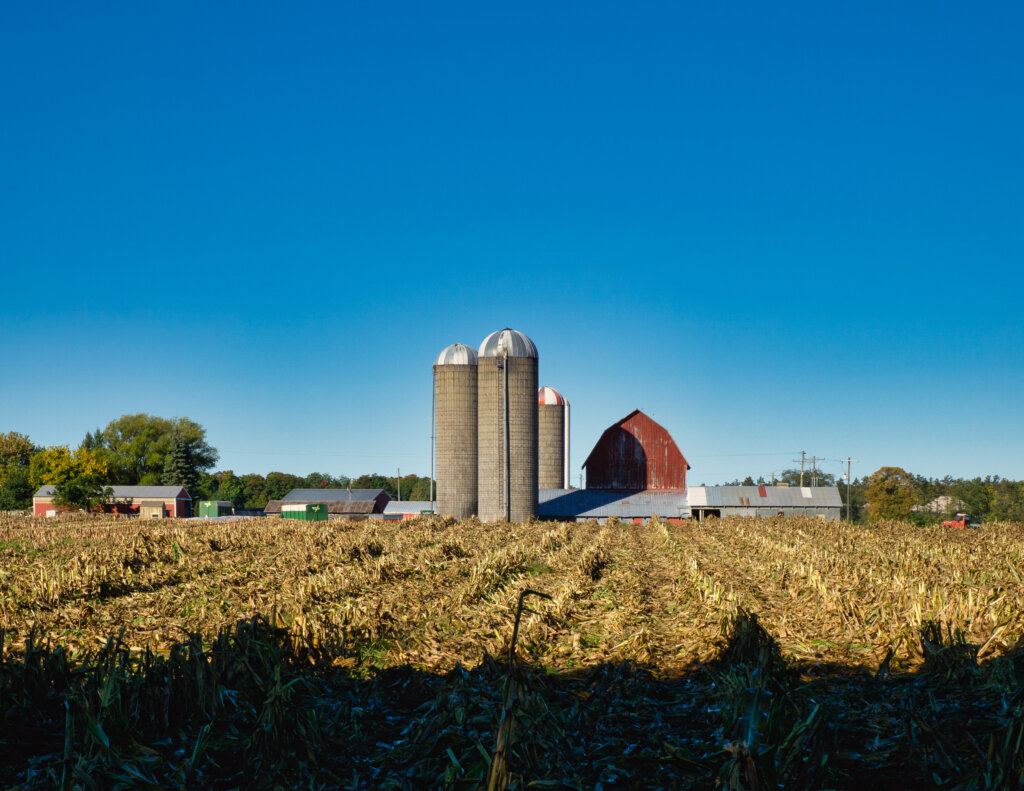
The Shimeks first contacted the Conservancy about ten years ago. Tom Nelson was heartbroken to tell them that their land didn’t meet the protection criteria for the available funding source. At the time, land with water or shoreline was highly prioritized for grant-funded dollars. “That doesn’t mean you’re not on our radar,” Nelson assured. “We would love to see this land preserved.”
Years passed, and the hope to preserve lingered inthe back of Linda’s mind. During that time, Tom Shimek fielded offers and opinions from both sides of the line. Leelanau’s farm community is tight-knit, and the Shimeks have other farm friends who have protected their farms, including an adjacent 305-acre farm. On the other hand, Tom has friends with vested interests in expanding the gravel pit, who would regularly drop him hints about the perks of selling.
A little over two years ago, Linda phoned the Conservancy to see if they would consider looking at the farm again. Her concerns about succession planning and the gravel pit expansion were growing. Together, the conversation of protection was reopened. When friends in favor of the gravel pit visited again, Tom had to tell them, “I’m going to be upfront with you, the family wants to put this place in Conservancy. They were nice about it,” he nodded. “And still come to visit.”
Farm Protection Director Kim Hayes is pleased that the farm will remain. “Growing up in the area, the Shimek’s farm was a driving landmark and a place to get delicious corn and other goodies. It was an exciting moment for me that in part of my work life, I was at the family dining table with Linda, Tom, and a few of their kids discussing permanently protecting the farm with a conservation easement,” she said. “The threats the land faced and the meaning the farm has for the Shimeks were both palpable. Knowing now that the farmland and beautiful hardwood forest are permanently protected is a celebration- both for conservation purposes and for this kind and hard-working family.”
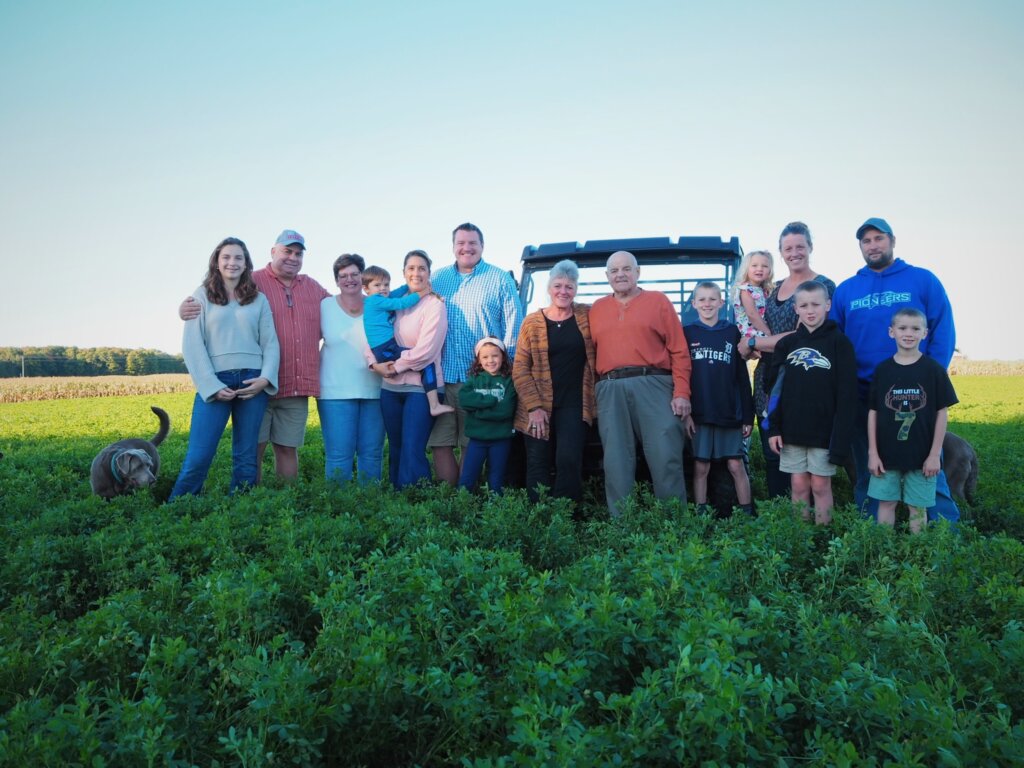
Tom and Linda decided to protect their cherished farm with the next generations in mind. Daughter Liz Moeggenberg is a local legend for an outstanding basketball career at Michigan State and was inducted into the MSU Hall of Fame just last year. She’ll be managing the farm full-time when Tom is ready to retire. She’s pulling her weight daily on the farm while Grandma Linda watches her toddler daughter Oaklyn. Tom and Linda are proud parents to Amie and Michael Valkner, TJ and Christina Shimek, and Liz and Luke Moeggenberg. They’re joyful grandparents to Liliana, Eleanor, Contessa, Leo, Lamdin, Fletcher, Cade, and Oaklyn. All the kids and grandkids have their homes adjacent to the new conservation easement. Seeing fourth-generation Shimeks grow up on the family farm has been a special kind of wonderful for Tom and Linda. “They’ll remember playing with the chickens,” Linda said. “They’ll remember raising steers. They’ll have memories they can pass on for years and years to come.”
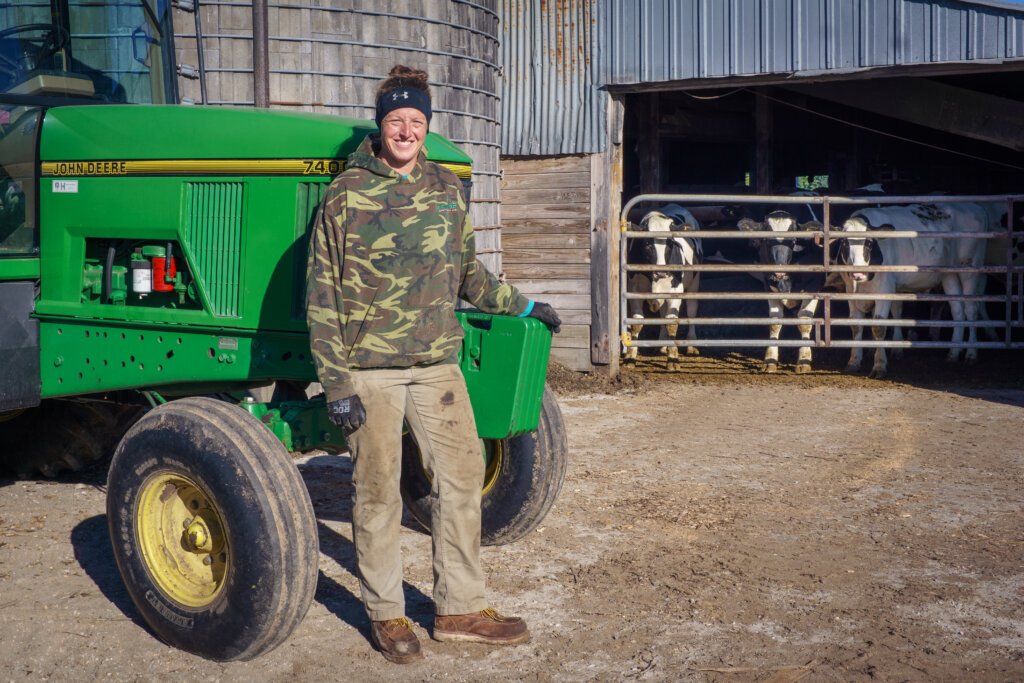
Shimek sweet corn is beloved county-wide and beyond. Shimek corn is picked by hand, and though the grandkids aren’t being put to work now, Linda suspects that there is already interest in farming from the younger generation. “They love being out here. They drive around, explore, ask questions. One of my granddaughters is at Michigan State studying biosystems and agricultural engineering. The whole family has a connection to this land. We’re excited about the future.”
Right now, the family is in their busy time of year, harvesting the field corn that passersby watch grow all summer. This corn is what fills the silos that are seen from the roadway as you drive by. Tom’s mornings during harvest season start before the break of dawn and continue until the last stalk is chopped.
The Shimeks can’t predict what the future will bring, but they rest easy knowing that they can always count on family, farming, and the land that made it all possible, to remain unchanged.
Learn more about the financial and ecological benefits of protecting your farm with a conservation easement by contacting Farm Protection Director Kim Hayes at khayes@leelanauconservancy.org. Special thanks to the Shimek family for protecting their land, the Natural Resources Conservation Service for providing funding through their Regional Conservation Partnership Program, and a group of supporters passionate about Leelanau farmland protection.

